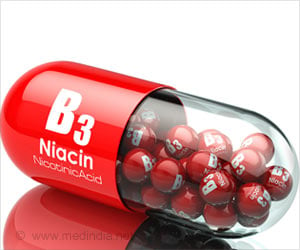Blocking the Bruton tyrosine kinase (BTK) protein provided clinical benefit to a small group of patients with severe COVID-19, said researchers.

TOP INSIGHT
In some patients with severe COVID-19, a large amount of cytokines are released in the body all at once, causing the immune system to damage the function of organs such as the lungs, in addition to attacking the infection. This dangerous hyperinflammatory state is known as a "cytokine storm."
The BTK protein plays an important role in the normal immune system, including in macrophages, a type of innate immune cell that can cause inflammation by producing proteins known as cytokines. Cytokines act as chemical messengers that help to stimulate and direct the immune response. At present, there are no proven treatment strategies for this phase of the illness. The study was developed to test whether blocking the BTK protein with acalabrutinib would reduce inflammation and improve the clinical outcome for hospitalized patients with severe COVID-19.
This prospective off-label clinical study included 19 patients with a confirmed COVID-19 diagnosis that required hospitalization, as well as with low blood-oxygen levels and evidence of inflammation. Of these patients, 11 had been receiving supplemental oxygen for a median of two days, and eight others had been on ventilators for a median of 1.5 (range 1-22) days.
Within one to three days after they began receiving acalabrutinib, the majority of patients in the supplemental oxygen group experienced a substantial drop in inflammation, and their breathing improved. Eight of these 11 patients were able to come off supplemental oxygen and were discharged from the hospital. Although the benefit of acalabrutinib was less dramatic in patients on ventilators, four of the eight patients were able to come off the ventilator, two of whom were eventually discharged. The authors note that the ventilator patient group was extremely clinically diverse and included patients who had been on a ventilator for prolonged periods of time and had major organ dysfunction. Two of the patients in this group died.
Blood samples from patients in the study showed that levels of interleukin-6 (IL-6), a major cytokine associated with hyperinflammation in severe COVID-19, decreased after treatment with acalabrutinib. Counts of lymphocytes, a type of white blood cell, also rapidly improved in most patients. A low lymphocyte count has been associated with worse outcome for patients with severe COVID-19. The researchers also tested blood cells from patients with severe COVID-19 who were not in the study. In comparison with samples from healthy volunteers, they found that these patients with severe COVID-19 had higher activity of the BTK protein and greater production of IL-6. These findings suggest that acalabrutinib may have been effective because its target, BTK, is hyperactive in severe COVID-19 immune cells.
 MEDINDIA
MEDINDIA




 Email
Email










